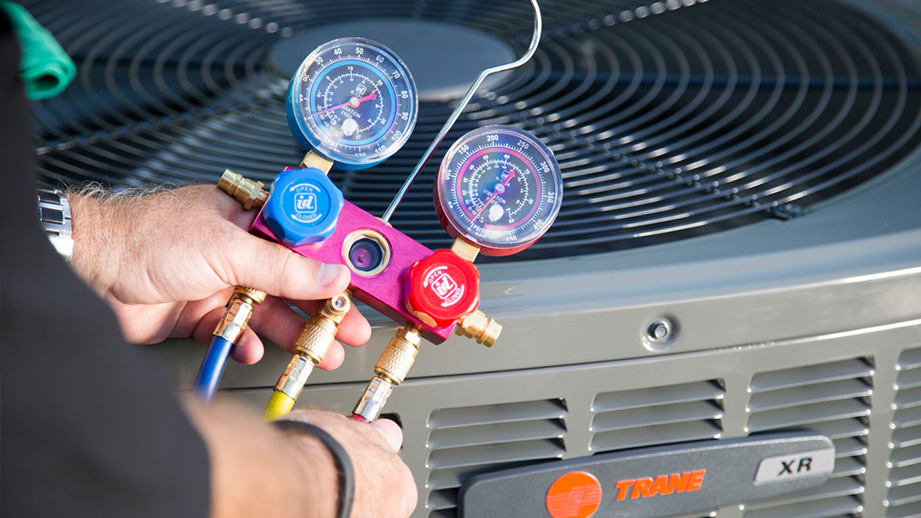Exactly How Cooling Improves Comfort and Air Top Quality in your house
The combination of air conditioning systems in property setups plays an essential duty in improving both convenience and air top quality. The implications of air conditioning extend beyond mere comfort; they touch on power effectiveness and total wellness.
Advantages of Air Conditioning
Air conditioning provides many advantages that prolong beyond plain comfort, considerably improving interior settings. Air conditioning systems filter and flow indoor air, getting rid of dust, allergens, and pollutants, consequently contributing to a healthier living area.
In addition, a/c plays an essential duty in moisture control. Extreme moisture can cause mold growth and structural damages, while a/c systems assist preserve optimal humidity degrees. This not just protects home but additionally boosts convenience by lowering the clamminess commonly connected with high moisture.
Power efficiency is one more crucial benefit. Modern cooling units are developed to run a lot more efficiently than older versions, minimizing energy usage and reducing energy expenses. Moreover, programmable thermostats allow individuals to maximize cooling timetables, guaranteeing that energy is utilized deliberately.
Finally, air conditioning adds to increased performance. Air Conditioning Brisbane. In work environments, a regulated environment can enhance emphasis and performance, emphasizing the importance of cooling in both residential and industrial setups
Just How Air Conditioning Enhances Comfort
Enhanced comfort in indoor settings is one of one of the most significant benefits supplied by air conditioning systems. These systems effectively manage indoor temperatures, making sure a continually positive environment despite outside weather. By preserving a steady temperature, a/c permits owners to take part in day-to-day activities without the pain usually brought on by excessive warm or humidity.
Additionally, cooling systems add to boosted rest high quality. A cooler setting contributes to much better sleep, as it assists lower the body's core temperature, signaling that it is time to remainder. This is particularly important during the warmer months when high temperature levels can disrupt rest patterns.
Furthermore, contemporary cooling devices commonly come equipped with programmable thermostats, enabling individuals to tailor their comfort degrees according to personal preferences and schedules - Air Conditioning Brisbane. This versatility not only enhances comfort yet likewise promotes energy performance, as systems can be set to operate just when needed

Enhancing Indoor Air Quality
A considerable advantage of cooling systems is their capacity to boost indoor air high quality. By distributing and filtering system air, these systems eliminate air-borne toxins, irritants, and impurities, leading to a healthier living atmosphere. High-efficiency particulate air (HEPA) filters, generally used in modern cooling devices, successfully capture dust, pollen, mold spores, and pet dander, consequently lowering the presence of irritants that can intensify respiratory issues and allergic reactions.
Additionally, a/c systems can help alleviate the effects of exterior pollution. By keeping a closed interior atmosphere, they limit helpful hints the influx of external irritants and particle matter. This is particularly valuable for individuals with bronchial asthma or various other respiratory system conditions, as enhanced air high quality can add to better health end results.
Additionally, some advanced air conditioning designs come furnished with ultraviolet (UV) light technology, which additionally purifies the air by reducing the effects of germs and infections. Normal maintenance of these systems, consisting of filter replacement and cleaning, is important to ensure optimal performance and air high quality. On the whole, the function of cooling in improving interior air quality can not be overemphasized, making it an important component of modern-day home convenience.
Handling Humidity Degrees
Reliable monitoring of humidity levels is crucial for preserving a comfortable and healthy and balanced indoor environment. High moisture can bring about discomfort, advertising a sensation of stickiness and making it challenging for the body to regulate its temperature. This problem can likewise create a perfect breeding place for mold, allergen, and visit various other allergens, ultimately impacting indoor air high quality.
Air conditioning systems play a significant function in controling humidity. By cooling the air, they likewise evaporate it, drawing out excess moisture as the air passes over cool evaporator coils.
In addition to cooling, making use of dehumidifiers can further help in taking care of humidity levels, especially in locations prone to excess dampness, such as cellars or bathrooms. Normal maintenance of a/c systems, including cleansing and changing filters, can enhance their performance in dampness control. By properly handling moisture, home owners can create an extra positive space while minimizing health and wellness threats related to poor indoor air high quality.
Energy Effectiveness and Sustainability
A/c systems' energy Visit Your URL efficiency is increasingly essential in today's environmentally mindful culture. As families seek to reduce their carbon footprints, the demand for energy-efficient cooling systems has surged. These systems are developed to make use of much less energy while preserving optimum interior comfort, therefore reducing utility bills and reducing environmental impact.
Technical improvements have actually resulted in the development of high-efficiency designs that utilize eco-friendly refrigerants and advanced heat exchange processes - Air Conditioning Brisbane. Solutions with higher Seasonal Energy Performance Ratios (SEER) and Energy Performance Ratios (EER) not just execute far better but also add to a sustainable future by decreasing greenhouse gas exhausts
Additionally, integrating clever modern technology into air conditioning systems enables more precise temperature control and energy administration. Property owners can readjust settings from another location, enabling them to optimize energy use and minimize waste.
Moreover, regular maintenance and correct installment are essential for guaranteeing that cooling units operate at peak effectiveness. This dedication to energy effectiveness not just boosts the longevity of the system however additionally lines up with more comprehensive sustainability objectives, eventually benefiting both the individual property owner and the setting.
Conclusion
